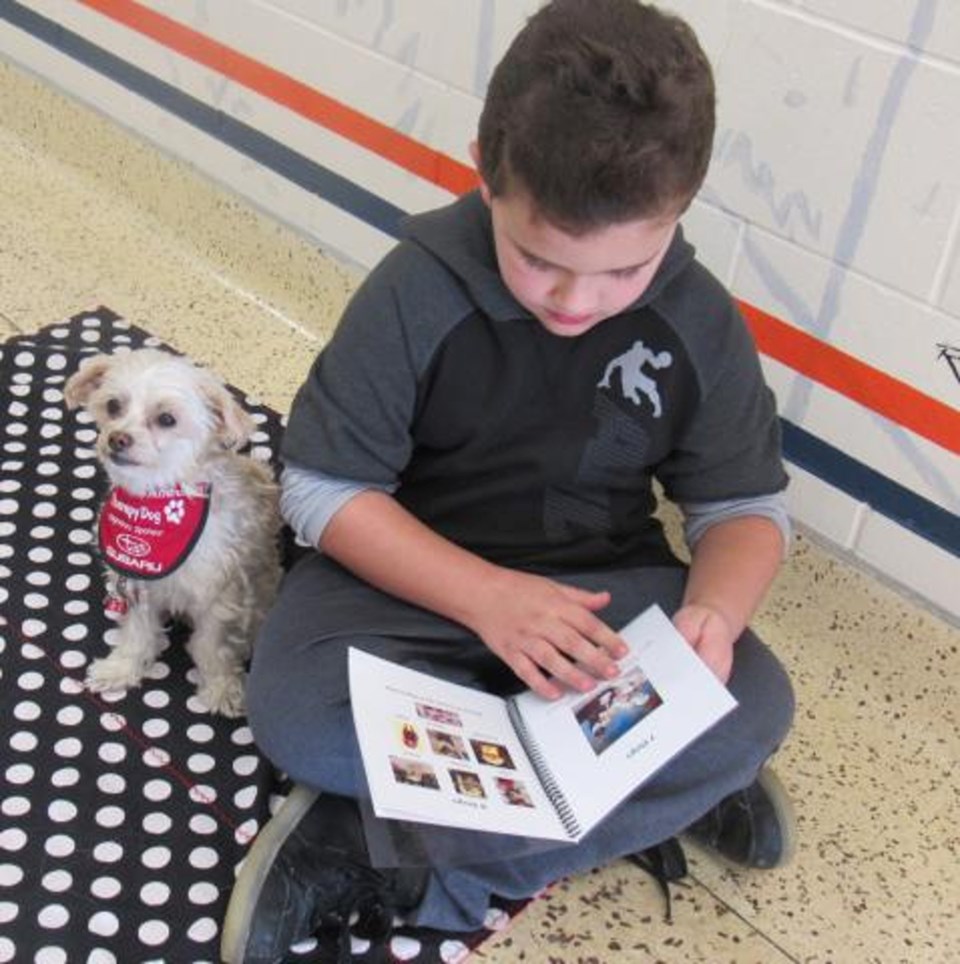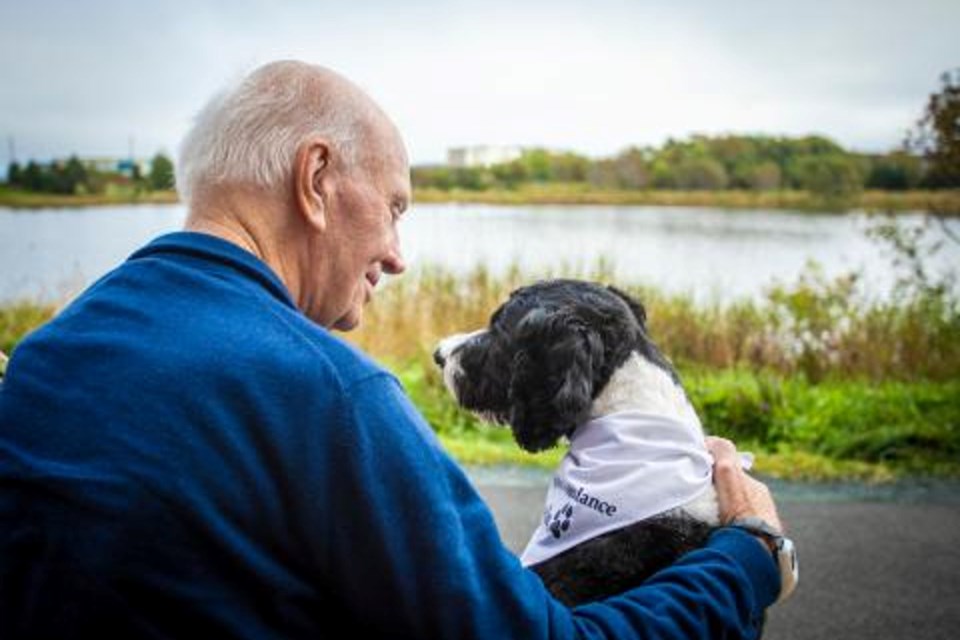Sometimes, a dose of unconditional love can work magic.
Therapy dogs and their handlers volunteer to visit hospitals, nursing homes, mental health facilities, schools and libraries, where they provide emotional and physical benefits through the chance to connect with a dog. Unlike service dogs, who are trained to perform tasks to help a specific person with a disability, therapy dogs are there to help many different people.
The St. John Ambulance Therapy Dog Program brings comfort and companionship to thousands of people across Canada on a daily basis. Petting, cuddling and affection during regular visits can benefit sick, lonely and elderly people as they receive unconditional love from a furry friend. The program is operated locally through the Burlington office on Waterdown Road.
“Our therapy dog program developed out of a need to offer comfort to seniors who often are isolated and lonely. The last few years highlighted this sense of isolation with the pandemic; similarly, our program interaction with youth, individuals with anxiety issues, and those with health issues oftentimes felt lonely, isolated, and desperate for some connection,” said Lou Taddeo, Halton Hamilton Regional Community Service Coordinator for St. John Ambulance.

Many dogs seem to have an innate sense of understanding when someone needs to be comforted. In addition to easing feelings of depression and loneliness, research has shown that petting a dog can ward off heart disease as blood pressure lowers and heart rate and breathing rate slow down. It also lowers the stress hormone cortisol while increasing levels of the “love” hormone oxytocin.
There are a number of qualifications required to be part of the St. John Ambulance Therapy Dog program. Handlers must be at least 18 years of age, pass a criminal records check, and be able to commit to once-a-week visits to a placement facility for a minimum of one year. After an orientation session, their dog-handling skills are evaluated.
Dogs must be at least a year old, preferably at least two, and have lived in the same home for a minimum of six months. They must be current with all vaccinations and receive annual veterinarian checks. Suitable therapy dogs display a calm demeanour and the ability to respond to basic commands. They must be friendly toward strangers and other animals without being boisterous or jumping on people, and they must not be fearful or aggressive.
Mock visits to healthcare facilities are done to test the dog’s sociability, temperament and ability to follow the handler's lead. Grooming and cleanliness are also considered.
“The magic to our program is that there are highly dedicated volunteer handlers with their furry companions who are well-behaved and friendly, and most importantly, these dogs are non-judgmental and offer their affection without any expectation for reward. The dog’s motives are plain and simple; they search out those in need of comfort and offer their love freely,” said Taddeo.
To find out more or to request therapy dog services, visit the website.



